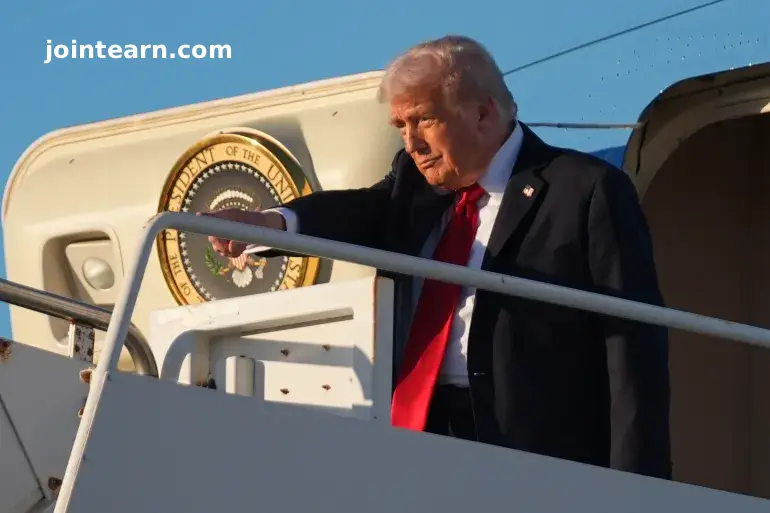
Trump’s Controversial Statement About Ending Wars
During a White House meeting with Ukrainian President Volodymyr Zelenskyy, President Donald Trump made a sweeping statement that reignited debate over his record on foreign policy. Trump declared that no previous U.S. president had ever ended a war, claiming that he alone has brought peace to conflicts around the globe.
On October 17, 2025, Trump said, “To the best of my knowledge, we’ve never had a president that solved one war — not one. Bush started a war in Iraq, and a lot of them start wars, but they don’t settle them.”
This claim, however, ignores several notable moments in American diplomatic history — including peace agreements personally brokered by past presidents such as Theodore Roosevelt and Jimmy Carter.
Fact-Checking Trump’s Statement: Have Other Presidents Ended Wars?
Historians and foreign policy experts quickly pushed back against Trump’s assertion.
According to David Silbey, a military historian at Cornell University, Trump’s claim “massively exaggerates what he’s done while ignoring the long record of presidential diplomacy that brought about real peace accords.”
Indeed, U.S. presidents have played key roles in ending wars that did not directly involve American troops, proving Trump’s claim historically inaccurate.
Theodore Roosevelt and the Russo-Japanese War (1905)
In 1905, President Theodore Roosevelt helped mediate peace between Russia and Japan, ending the Russo-Japanese War.
The negotiations, held at the Portsmouth Naval Shipyard in New Hampshire, resulted in a formal treaty and earned Roosevelt the 1906 Nobel Peace Prize — making him the first American president to win the prestigious award.
This landmark achievement demonstrated that the United States could serve as a global peace broker long before modern-day diplomacy.
Jimmy Carter and the Camp David Accords (1978)
Another historic example came in 1978, when President Jimmy Carter successfully brought together Egyptian President Anwar Sadat and Israeli Prime Minister Menachem Begin at the presidential retreat, Camp David.
After intense negotiations, the Camp David Accords were signed on September 17, 1978, formally ending decades of hostilities between Egypt and Israel. Both leaders received the Nobel Peace Prize that same year, and Carter’s efforts remain a cornerstone of Middle Eastern diplomacy.
Other Presidents Who Helped End Conflicts
Even when presidents did not personally negotiate peace treaties, several American leaders oversaw diplomatic efforts that ended wars through their administrations.
1. Bill Clinton and the Bosnian War (1995)
Under President Bill Clinton, the Dayton Peace Accords ended the bloody Bosnian War. The agreement, signed in Dayton, Ohio, involved key U.S. diplomats such as Richard Holbrooke and Secretary of State Warren Christopher, working alongside European and Russian officials.
2. Clinton and the Good Friday Agreement (1998)
During Clinton’s tenure, U.S. involvement was also instrumental in brokering the Good Friday Agreement, which brought peace to Northern Ireland after decades of sectarian violence known as “The Troubles.”
Senator George Mitchell led the peace talks, with strong backing from the White House.
3. George W. Bush and Sudan’s Civil War (2005)
In 2005, the Comprehensive Peace Agreement ended Sudan’s civil war, paving the way for the creation of South Sudan in 2011. The negotiations were supported by Secretary of State Colin Powell under President George W. Bush’s leadership.
Trump’s Record on Ending Conflicts
President Trump has frequently claimed to have ended as many as six to eight wars during his presidency. While he has played a role in temporary ceasefires and peace discussions, experts note that most of these were short-term truces rather than permanent resolutions.
Among the conflicts Trump has cited:
- Ceasefire agreements involving Israel and Iran, India and Pakistan, and Armenia and Azerbaijan
- Mediation efforts between Cambodia and Thailand, and the Democratic Republic of the Congo and Rwanda
However, these deals often failed to produce lasting peace.
For instance, fighting resumed in eastern Congo within months of Trump’s touted agreement. Similarly, tensions remain between Kosovo and Serbia, and the Egypt-Ethiopia Nile dispute continues unresolved.
Trump’s Latest Peace Initiative: Israel and Gaza
Trump recently announced progress in mediating an agreement to end Israel’s war on Gaza, involving multi-stage negotiations. Analysts caution that it is too early to determine whether this deal will lead to enduring peace, but it marks one of Trump’s most significant recent diplomatic efforts.
Despite his self-comparisons to past peace brokers, Trump’s remarks at the United Nations in September 2025 — suggesting he deserves multiple Nobel Peace Prizes — drew both attention and skepticism.
The Norwegian Nobel Committee instead awarded Venezuelan opposition leader María Corina Machado for her work promoting democracy.
Verdict: Trump’s Claim Is False
The historical record shows that at least two U.S. presidents — Roosevelt and Carter — directly brokered peace deals that ended wars, while several others oversaw significant peace agreements through their administrations.
PolitiFact and historians alike have rated Trump’s statement — that no president before him ended a war — as false.
Summary: Key Takeaways
- Trump’s claim ignores multiple U.S. presidents who negotiated peace.
- Theodore Roosevelt ended the Russo-Japanese War (1905).
- Jimmy Carter ended the Israel-Egypt conflict (1978).
- Bill Clinton helped end wars in Bosnia and Northern Ireland.
- George W. Bush supported peace in Sudan, leading to South Sudan’s independence.
- Trump’s peace deals have often been temporary or disputed.
Leave a Reply